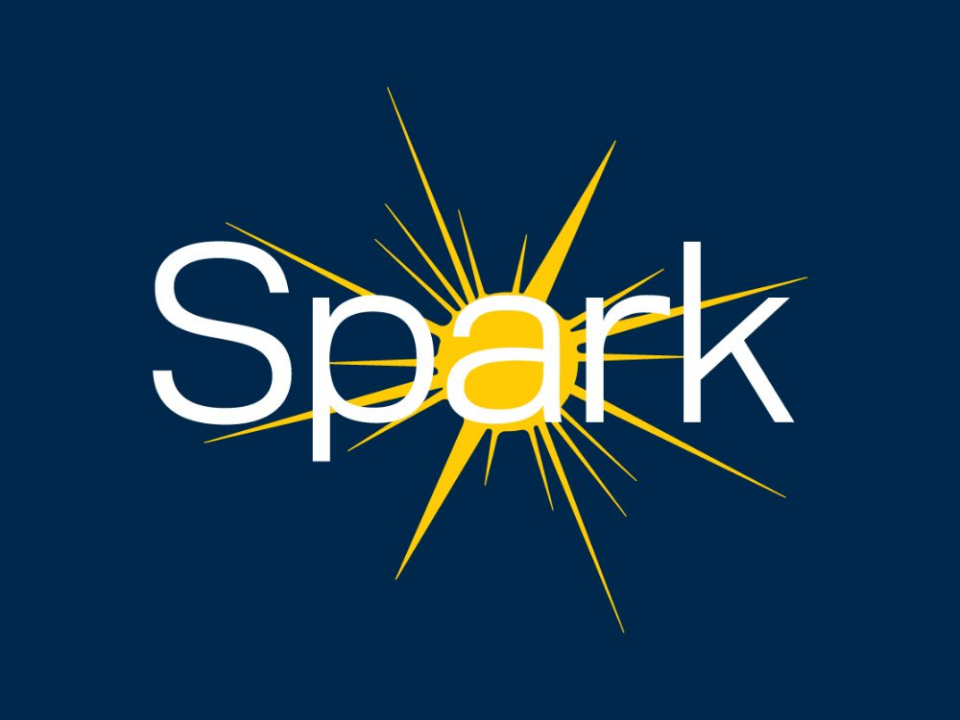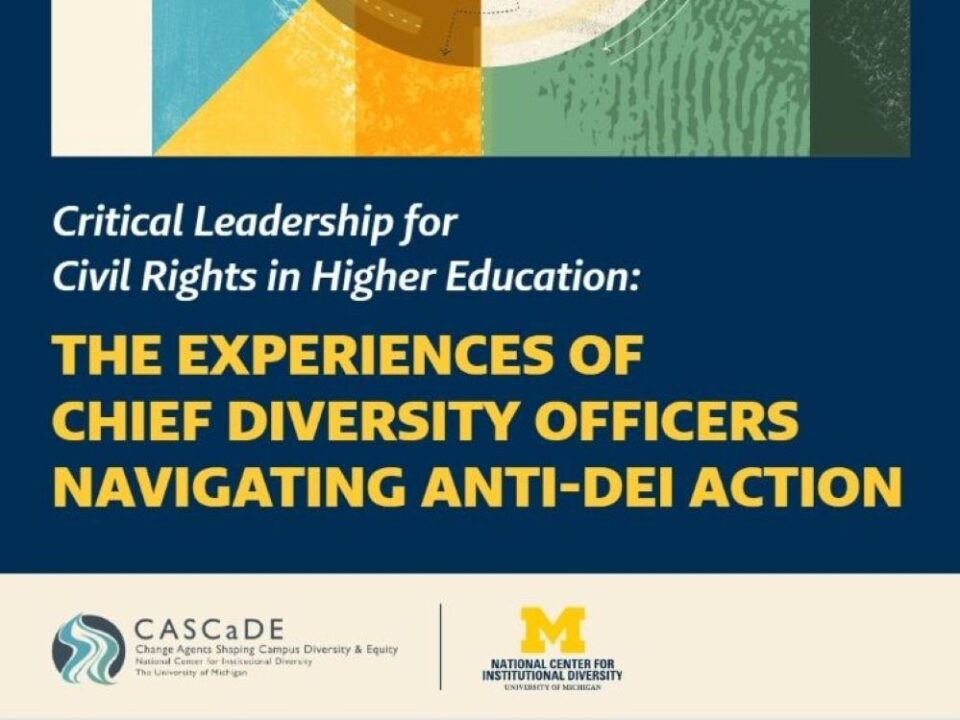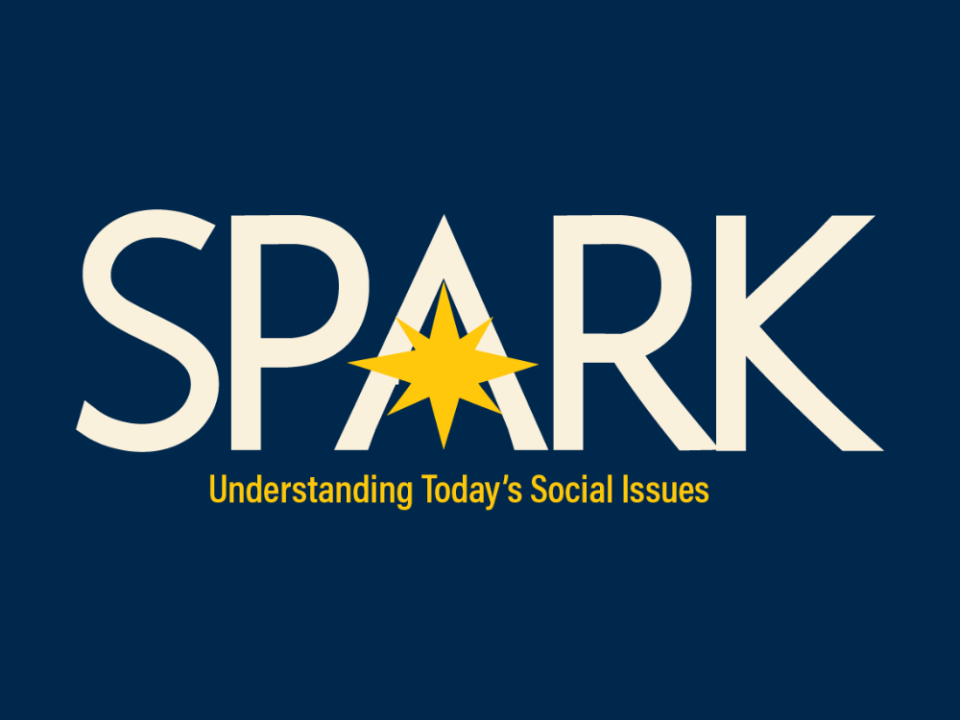- About
- News
- Events
- Initiatives
- Anti-Racism Collaborative
- Change Agents Shaping Campus Diversity and Equity (CASCaDE)
- Diversity Scholars Network
- Inclusive History Project
- James S. Jackson Distinguished Career Award for Diversity Scholarship
- LSA Collegiate Fellowship Program
- University Diversity & Social Transformation Professorship
- Publications & Resources
- About
- News
- Events
- Initiatives
- Anti-Racism Collaborative
- Change Agents Shaping Campus Diversity and Equity (CASCaDE)
- Diversity Scholars Network
- Inclusive History Project
- James S. Jackson Distinguished Career Award for Diversity Scholarship
- LSA Collegiate Fellowship Program
- University Diversity & Social Transformation Professorship
- Publications & Resources
National Center for Institutional Diversity to be housed at LSA
September 29, 2016Transforming Understandings of Diversity
What do we mean when we talk in a serious way about “diversity”?
"Transforming Understandings of Diversity in Higher Education" is the first collaborative research effort by our Diversity Scholars Network.
As announced at our "Future of Diversity Research" convening in Spring 2016, this collaborative effort brought junior and senior faculty members across the nation together to explore how competing understandings of "diversity" have shaped higher education and how "diversity" will continue to shape the narratives and experiences of faculty, students, and staff in the future.
The NCID coordinated the effort to assemble and organize our scholar's work for "Transforming Understandings of Diversity in Higher Education", whose announcement came as we brought together our Diversity Scholars Network for the first time ever. This exclusive network brings together faculty members interested in diversity-related research (and who are themselves diverse in identities, interests, and experiences) for collaborations and mutual support, so that we can build an academy with more diverse research and researchers.
Consistent with the NCID's mission, "Transforming Understandings of Diversity" provides the foundation for our future efforts to encourage diversity-related research through our Diversity Scholars Network, and this book's strong analytical approach and wide-range of topics in academia promise that it will become a foundational text for serious analysis of democracy, demography, and discourse in higher education.
Book Summary
Transforming Understandings of Diversity in Higher Education: Democracy, Demography, & Discourse
This exciting new text examines one of the most important and yet elusive terms in higher education and society: What do we mean when we talk in a serious way about “diversity”?
A distinguished group of diversity scholars explore the latest discourse on diversity and how it is reflected in research and practice. The chapters trace how the discourse on diversity is newly shaped after many of the 20th century concepts of race, ethnicity, gender and class have lost authority. In the academic disciplines and in public discourse, perspectives about diversity have been rapidly shifting in recent years. This is especially true in the United States where demographic changes and political attitudes have prompted new observations—some which will clash with traditional frameworks.
This text brings together scholars whose research has opened up new ways to understand the complexities of diversity in higher education. Because the essential topic under consideration is changing so quickly, the editors of this volume also have asked the contributors to reflect on the paths their own scholarship has taken in their careers, and to see how they would relate their current conceptualization of diversity to one or more of three identified themes (demography, democracy and discourse). Each chapter ends with a candid graduate student interview of the author that provides an engaged picture of how the authors wrestle with one of the most complicated topics shaping them (and all of us) as individuals and as scholars. Of interest to anyone who is following the debates about diversity issues on our campuses, the book also offers a wonderful introduction to graduate students entering a discipline where critically important ideas are still very much alive for discussion.
Chapters, Authors, and Media
- Color-Blind Ideology and the Disconnected Power-Analysis Frame Considerations for Historically Black Colleges and Universities’ Diversification - Uma M. Jayakumar and Annie S. Adamian
- An Interview With Uma M. Jayakumar: Social Agency and the Power of Resistance - Diane M. Back
- A Theory of Equity: A Social and Legal Analysis of College Access for Low-Income Students - Jarrett T. Gupton and Karen Miksch
- An Interview With Jarrett T. Gupton: The Value of Uncertainty and the Need for Nuance - Sheela Linstrum
- Lesbian, Gay, Bisexual, Transgender, and Queer Students on Campus: Fostering Inclusion Through Research, Policy, and Practice - Michael R. Woodford, Jessica Joslin, and Kristen A. Renn
- An Interview With Michael R. Woodford: Bringing Invisible Communities to Light: Disciplinary Norms, Collaboration, and the Quest for Legitimacy - Timothy Hickey-LeClair
- Racially and Socioeconomically Diverse Students’ Pathways to College: An Exploration of Latin@ Students - Angela M. Locks, Dawn Person, Michelle Cuellar, Jeanette Maduena, and Melba Schneider Castro
- An Interview With Angela M. Locks: Understanding the Complexities of the College-Going Process - James M. Ellis
- Architecture of Diversity: Using the Lens and Language of Space to Examine Racialized Experiences of Students of Color on College Campuses - Michelle Samura
- An Interview With Michelle Samura: How the “Blue Wall” Changes Our Discourses on Race in Higher Education: Stepping Out of the Comfort Zone and Seeing Things in a Different Light - Jimin Kwon
- Including Disability in the Discourse: Extending and Advancing the Defi nition of Diversity in Higher Education - Allison Lombardi and Adam Lalor
- An Interview With Allison Lombardi: Including Disability in the Discourse - Lloyd Edward Shelton
- The Impact of Media Imagery on Academic Identity Development for Black Male Student Athletes - LaVar J. Charleston and Jerlando F. L. Jackson
- An Interview With Jerlando F. L. Jackson: An Instrumental Diversity Researcher - Carly Wegner
- Racialized and Gendered Experiences of African American Female Faculty at Public Community Colleges - Tamara Nichele Stevenson and Eboni M. Zamani-Gallaher
- An Interview With Tamara Nichele Stevenson, Surviving Racial Battle Fatigue: Cultivating Safe Spaces in Radicalized Environments - Tonya Kneff
- Unpacking the Mandate Rhetoric of Historically Black Colleges and Universities’ Diversity Discourses - Courtney Carter
- An Interview With Courtney Carter: Unpacking the Mandate Rhetoric of Historically Black Colleges and Universities’ Diversity Discourses - Demar F. Lewis IV
- Transforming Demography, Democracy, and Discourse Through Diversity in Education and Society - John C. Burkhardt and Marie P. Ting




